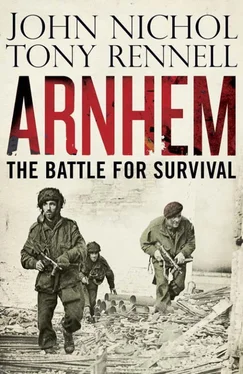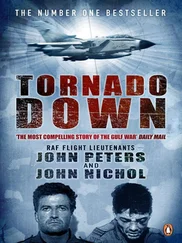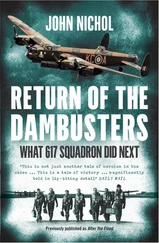Many Dutch families took to the air-raid shelters that morning as the Allies’ pre-invasion action to knock out German ground defences intensified, but others ignored the danger in their excitement. In Arnhem, Heleen Kernkamp could not drag herself away from the window, her eyes fixed on the ‘fantastic’ dogfights up among the thin clouds: ‘I felt no fear.’ But at the home of Piet Huisman in the north of the town, bomb fragments and bullets flying around outside came too close for comfort and interrupted the birthday celebrations for his four-year-old son. The family hastily retreated from the drawing room to mattresses in the cellar. At her house close to the river at Oosterbeek, an anxious Kate ter Horst bundled her children inside from the apple orchard where they had been playing when the rik-atik-atik of machine guns broke the quiet of the morning. Seven children and three adults crowded under the staircase as bullets skittered across the slate roof. The little ones clung to their mother’s side. From the church just across the way came a new sound – the congregation, on their feet apparently, and defiantly singing the Wilhelmus, the Dutch national anthem. Gingerly, the family assembled outside and marvelled at the seemingly endless waves of Allied planes.
At the van Maanen house, a neighbour poked his head round the front door, bringing news, but stopped in amazement as he caught sight of Paul. Paul, in turn, went white. He wasn’t meant to be seen by anyone, indeed, had not been seen for months, even by this friend from next door. With lives at stake, secrets were best kept if nobody outside the house knew. But now, it appeared, the days of secrecy might well be over. The neighbour came with incredible tidings: ‘He tells us he has seen parachutists dropping from the skies. Something big is clearly happening. It’s the invasion! We go crazy. We jump and dance around. We shout with joy. This is IT…’ The telephone rang, and their doctor-father came on the line from the police station, where he was manning a casualty post. Excitedly, he told them to go to the roof and look to the west. ‘We rush up the stairs and on to the flat roof. We see aeroplanes with gliders, a glorious sight. When the gliders drop their tow ropes, they dive down into the bushes while the planes that have been towing them come right on towards us, turn above our heads and go back towards England. We wave at them enthusiastically. Planes and more planes are coming from the misty horizon. Freedom is coming from the skies. It really is fantastic. The war is over now. By tomorrow, we could be FREE!’ The moment they and millions of other Dutch people had prayed for and dreamt of for so long was here. ‘Out in the street, people are singing and dancing.’ It seemed almost too good to be true. ‘Is this the long-awaited release from our misery?’ Kate ter Horst asked herself. ‘Can it be true?’ [1] Cloud over Arnhem , by Kate ter Horst. Allan Wingate, London, 1959.
Back in Arnhem, Piet Huisman eventually emerged from the cellar and watched in wonder the array of red, green and blue parachutes floating down in the distance. (The different colours identified the type of supplies slung underneath – ammunition, food or medical.) His son whooped with joy, under the impression that all the colour and commotion was in celebration of his birthday. There were so many parachutists dropping, so big an army, that Huisman wondered ‘if the British will liberate us today’. [2] P. H. Huisman. Private memoir. Airborne Assault, Imperial War Museum, Duxford.
The answer to his question came sooner than anyone expected. A friend from Wolfheze rang Heleen Kernkamp to say that she’d come home from church to find a British officer, fifteen men and two jeeps in her garden. Most amazingly, he had saluted her and said, ‘Good morning, madam,’ as nonchalantly and politely as if he had come to deliver the groceries. That afternoon, young Marie-Anne stood at her garden gate and watched a stream of retreating German soldiers heading into Oosterbeek from the direction of Wolfheze. ‘A sergeant had been shot in the leg and he could hardly walk. Some other German soldiers were standing along the road and one would think that they would hasten to help their wounded comrade. But no, the dirty swine just stand there, hands in pockets, watching him. And I thought that soldiers could always rely on their comrades to help them!’ Meanwhile, the German platoon who had been billeted on her family was preparing to leave. They clambered on to trucks and went, calling out, ‘ Auf Wiedersehen ! Till we meet again!’ It was not a sentiment she could return. ‘I hope I’ll never have to look at another German again,’ she thought to herself.
Now only the platoon’s cooks remained, getting more and more agitated as they waited for transport to arrive to haul away their mobile kitchen. Nothing came, and they paced up and down anxiously, until the local vet happened by in his car to inspect horses and cows wounded by the bombing. The Germans forced him to halt and at gunpoint ordered him to drive them to the German border. Marie-Anne watched as the Germans piled in, ‘but at the last moment one of them goes back to the house for some bread and cheese. Suddenly two other soldiers come down the street shouting, “ Die Engländer, die Engländer !” and they all start running away towards Arnhem. With the Germans gone, we go inside, and I am standing in the corridor when I hear voices. I peer around the door and see soldiers, lots of them. They are English. The Tommies have come. They’re here!’
Leo Hall felt like a crusader. He had only just avoided disaster when he landed, missing the open space of the DZ and coming down in a tree. ‘I was left dangling 6 feet from Dutch soil.’ A helping hand to cut him down, followed by a reviving swig of grog from someone’s flask, got him on his way. His morale was sky-high as, in battle order, he and his platoon moved off the drop zone towards Arnhem, along a leafy tree-lined track until they came to a narrow road. ‘This was the day we’d waited so long for.’ [3] Private memoir. Target Mike One , and JN interview, 2010.
Those they had come to liberate were pouring out of their houses to cheer them. ‘I passed an elderly man, tears streaming down his face as, eyes closed, he sang “God Save the King” in English. Young men were urging us on, wanting to help, bringing hijacked trucks, wearing their orange armbands with the sort of patriotic pride I’d never seen before in all my twenty-three years. Bang goes number-one bit of briefing, I thought. Where on earth did that “probably Nazi” rubbish originate? A “play safe” bit of intelligence, I guessed. I’ll trust these people any day.’ But he worried that their joy might be premature, that they may have underestimated the determination of the German army. ‘Did they realize how much havoc the enemy could cause with a couple of snipers, a machine gun and a light field gun? I wanted to tell them that it wasn’t over, by any means. There would be killing, devastation, even if all went according to plan.’ As if to confirm such fears, James Sims met his first Dutchman – smartly dressed in a tweed suit and a felt hat – who warned him that there were six German armoured cars in the area. ‘As he spoke, we could hear their powerful engines revving up.’ The enemy were here already.
Nonetheless, after landing, most men set off full of optimism. Despite the impressive sight they had made as they dropped, in truth they were a smallish force for such a large and important task, with just five thousand parachutists and glider troops landing that first day. But more would come in the second and third lifts, enough to hold off the Germans for the couple of days necessary until XXX Corps could get there overland. And there seemed no real opposition to worry about. The bigger danger in fact was heavy supply canisters or kitbags dropping on the heads of the unwary. Those who had been on earlier airborne missions were amazed at the ease of it all. Compared, for example, with a fiercely opposed night-time landing in Sicily – the memory of which had lodged uneasily in the minds of some veterans before they dropped – this was more like a practice jump than the real thing. There was some sporadic firing to be heard from around the DZ, but very little. A few German soldiers who happened to be in the area – some, apparently, out for a Sunday picnic on the heath with their girlfriends – were quickly dealt with by the advance guard. For many arriving in enemy country that day, their first sight of the actual enemy was either a dead one lying on the ground or those who, taken by surprise, had surrendered. Hands in the air and looking very frightened because they thought they were about to be summarily shot, they were being marched to a temporary compound. It was a heartening sight and augured well.
Читать дальше












